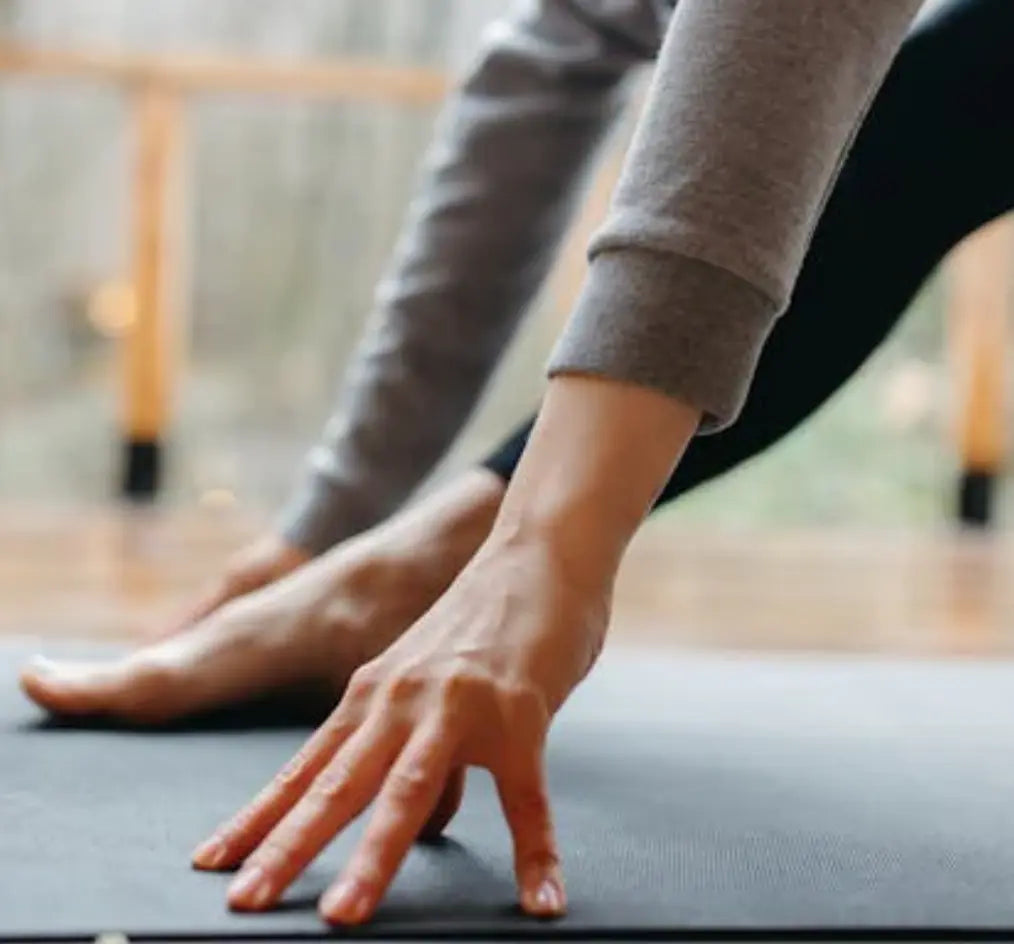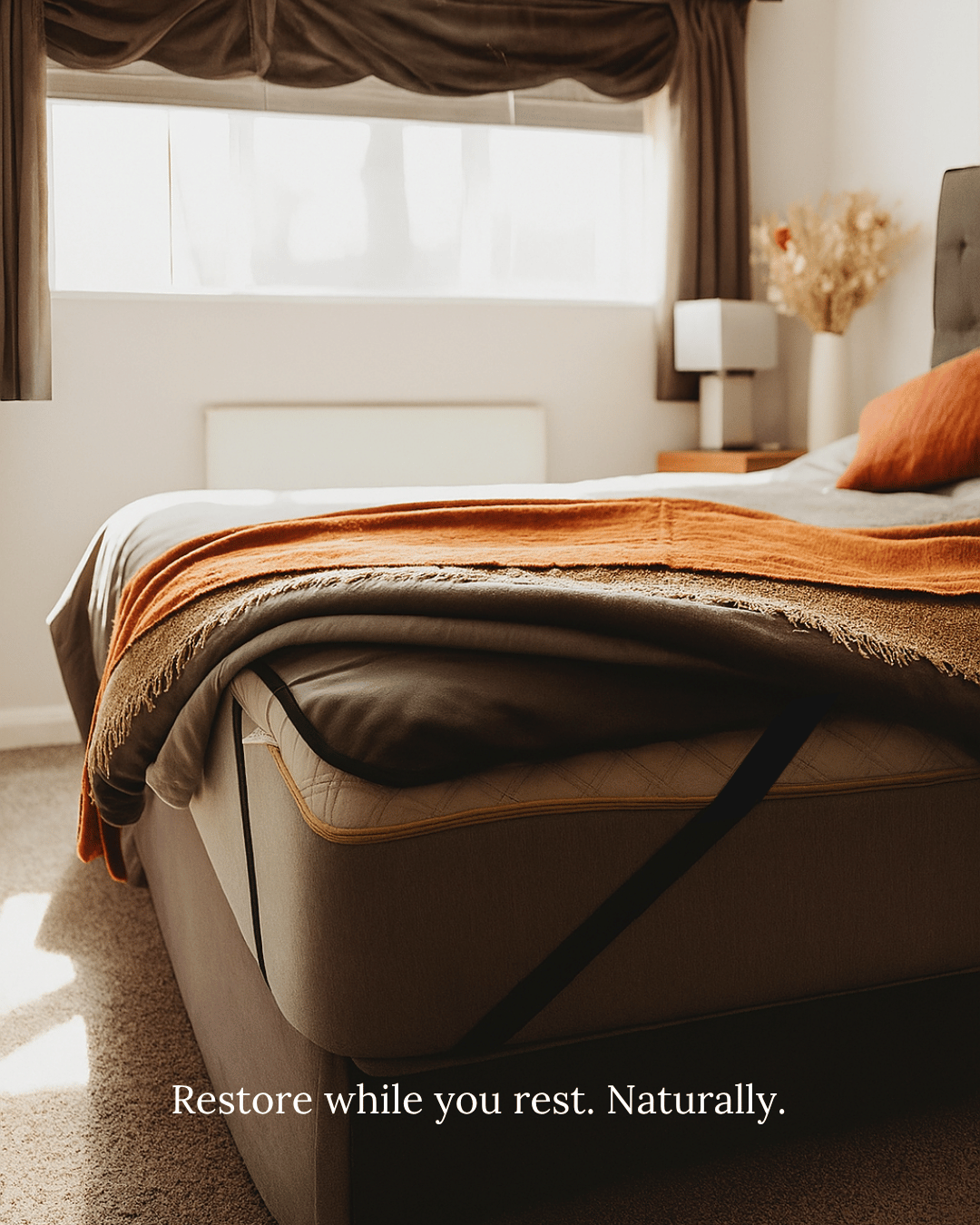The Search for Safe Wellness
If you’re expecting a baby, every choice suddenly feels monumental. The tea you drink, the supplements you take, even the way you sleep—each decision comes with the quiet question: is this safe for me and my baby? The same goes for people living with pacemakers or medical implants. Wellness practices that seem harmless to others can feel uncertain when your health (or your baby’s health) is on the line.
So, what about grounding? Is earthing while pregnant a safe option? What about using a grounding pad if you have a pacemaker? Let’s clear up the confusion.
Why Safety Questions Matter
Pregnancy, pacemakers, and implanted medical devices are unique situations. When you’re in one of these groups, you rightfully want to know whether a wellness practice that seems simple to others comes with hidden risks.
That’s why terms like grounding contraindications come up often in forums and wellness communities. People want to know: could this interfere with my heart rhythm, affect fetal development, or cause issues with sensitive devices?
What Research and Experts Say
Here’s the reassuring part: so far, there’s no scientific evidence of harm from grounding in these scenarios.
-
For pregnancy: Clinical studies on grounding haven’t shown adverse effects, and some researchers suggest that reducing stress and inflammation through grounding may actually support healthier cortisol rhythms during pregnancy. But because large-scale studies in pregnant populations are lacking, the official answer remains: likely safe, but unproven.
-
For pacemakers and implants: Grounding pacemaker risks have not been demonstrated in published research. Grounding products don’t emit electricity; they simply conduct the Earth’s natural charge. Unlike devices that generate fields, grounding pads act passively. That said, everyone’s device and health condition is different, so caution and consultation with a cardiologist is always advised.
In other words, grounding pregnancy safe? Likely yes. Grounding safety medical devices? Probably safe. But in both cases, talk to your healthcare provider first.
When to Consult Your Doctor
Think of your doctor as your personal safety consultant. If you’re pregnant or living with a pacemaker, it’s worth asking:
-
“Is there any reason I shouldn’t try grounding while I sleep?”
-
“Could grounding interact with my implant or medication in any way?”
Most physicians will say it’s fine, but getting the all-clear offers peace of mind that no blog post—no matter how expert—can replace.
Safety Checks for Grounding at Home
If you and your provider decide grounding makes sense, here’s how to make it as safe as possible:
-
Use a certified product. Not all grounding pads are created equal. Look for pads tested for conductivity and safety.
-
Test your outlet. Use a simple tester to ensure your wall outlet is properly grounded. This is one of the most important steps in grounding safety medical devices—you want clean, reliable grounding, not faulty wiring.
-
Follow instructions. Don’t improvise your setup; use the product as directed.
Alternatives if You’re Unsure
If you’re not comfortable using a grounding pad during pregnancy or with an implant, you can still ground naturally.
-
Barefoot outside. Walking on grass, soil, or sand for 20–30 minutes gives you the same Earth connection.
-
Gardening. Hands in the soil can provide a surprising amount of grounding contact.
-
Lean on nature. Simply sitting with bare feet on the ground is often enough.
These methods are completely natural, require no equipment, and may feel safer for those hesitant about devices.
Conclusion – A Sensible Approach to Grounding Safety
So, is grounding safe during pregnancy and for people with pacemakers? Current evidence suggests that it is safe for most people, but research is still catching up. There’s no strong evidence of harm, and many people report benefits—but in these special situations, consultation with your doctor is the smartest step.
Grounding is not about taking risks; it’s about restoring a connection your body evolved to rely on. For most people, with the right setup, it’s safe and simple.
















